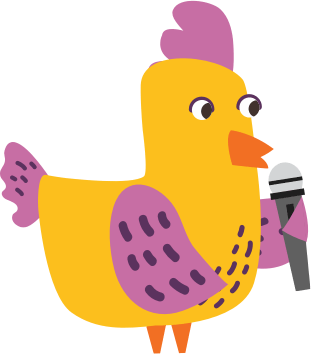
Here at Nellie's, we firmly believe that hens are happiest when they have free access to sunshine, fresh air, green grass, yummy grubs, and all the other enrichment that the great outdoors offer.
And for that simple reason, we require that each of our partner farms implement the same "outdoor policy" for their flocks in order to ensure that every hen has the chance to live her best, most fulfilling life. So what is that policy, anyway? And does free range really mean the hens get to spend their days outdoors? Let's dig a little deeper into what outdoor access means for the hens on Nellie's Free Range farms.
What does free range mean for egg-laying hens?
Although the term "free range" is defined for egg-laying hens by the USDA, these guidelines lack detail and are far more rigorous when certified by a third-party like Certified Humane. All of our farms follow or exceed Certified Humane's standards, which means our flocks have daily access to grassy pastures, are never put in cages, and have a minimum of 2 square feet if pasture per hen. As you may already know, this paints quite a different picture than that of a cage-free lifestyle, which is one without any access to outdoor pastures where the hens can display natural behaviors like perching, dust bathing, and foraging for insects and grubs. Needless to say, we believe it's essential that hens have access to the outdoors.
How often do free range hens go outside?
Per Certified Humane's requirements, all Nellie's hens are given daily access, weather permitting, to an uncovered outdoor pasture for a minimum of 6 hours per day during daylight hours. Certified Humane also required that hens have easy access to exits in their coop, allowing more than one hen to make her way outdoors or back indoors at a time. It should also be noted that our farmers never force their flocks outdoors; they put the "free" in free range by giving freedom of choice to each and every hen.
Do free range hens have a coop?
It's actually a common misconception that free range and even pasture-raised hens spend their entire lives outdoors! In fact, Certified Humane requires all hens to have access to a warm, appropriately-sized shelter that can protect them from wind, rain, snow, and excessive heat. And when it comes to dangers like predators, the safest place for a flock is indoors. So while it can be tempting to let the girls roam from sunup to sundown, our farmers are always careful to keep a close eye on weather and their surroundings in case their hens need to be ushered back indoors while a nearby hawk or extreme heatwave passes.
When should free range hens stay inside?
Though we ensure that our hens have the opportunity to spend as much of the day as possible outdoors, there are a few reasons why our farmers might bring their hens back inside. For each exception to normal outdoor access, our farmers log the details of their decision and the factors that influenced it. Considerations include:
Temperature
If the outside temperature is below 45 or above 93 degrees Fahrenheit, it's safest to keep the hens inside where the climate is more moderate.
Inclement weather
Rain, snow, and standing water can all pose a threat to our hens' immune system, so on stormy days, it's best to move them to the coop where it's dry.
Laying time
Most of our hens are accustomed to laying their eggs during the early hours of the morning, so our farmers tend to keep them nice and cozy in their coop before sunup. This helps encourage the hens to lay eggs in their nests rather than in the outdoors.
High-risk periods
During high-risk periods where a disease like Avian Influenza is a known hazard for that area, in consultation with our team of experts, we may request that our farmers keep their flocks inside.
Creating spaces conducive to enrichment, following the most rigorous free range standards possible, and putting our hens' happiness and health first are just a few of the ways we've ensured that you and your family can always trust that you're getting the best eggs out there. We're proud to display "free range" on our cartons, but we're even more proud of what it means; that our eggs come from hens with the freedom to enjoy the great outdoors and all that our pastures have to offer.








